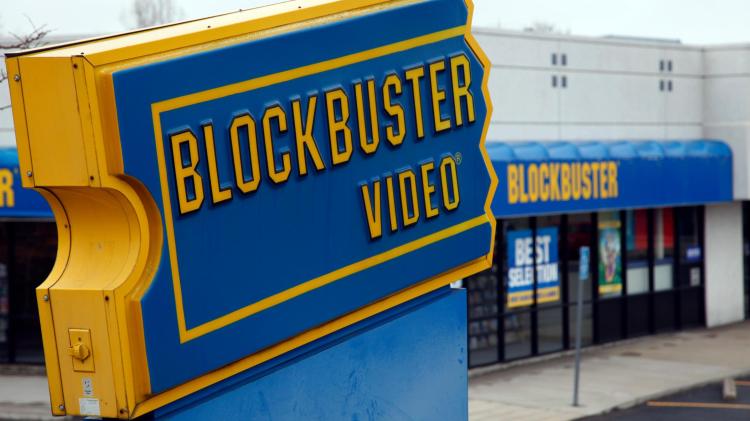In case you were wondering what that thunderous shock was earlier this week, it was the trailer for Captain Marvel finally landing and sending social media into a frenzy. Unfortunately, the two-minute advertisement has fanned the flames of nostalgia for a dark bit of U.S. history.
I am, of course, referring to Blockbuster Video. In the trailer’s opening scene, Captain Marvel crashes into a Blockbuster Video store, which allows us to deduce that we are smack dab in the early 1990s. Only the playing of “Smells Like Teen Spirit” could have made this more painfully obvious.
The puzzling romantic revival of Blockbuster got its start earlier this year with stories about people visiting the last store in Oregon. This has become a thing that people do and has spawned philosophical waxings about how we’re losing a little bit of our humanity because this once omnipresent retail chain has all but vanished.
To which I offer this riposte: Ugh.
June 5th: The AI Audit in NYC
Join us next week in NYC to engage with top executive leaders, delving into strategies for auditing AI models to ensure fairness, optimal performance, and ethical compliance across diverse organizations. Secure your attendance for this exclusive invite-only event.
As things fade away, it’s easy to forget their faults. So as someone who grew up in the age of Blockbuster, let me take this opportunity to remind you of just how hideous it was, both culturally and economically.
First, as is the way with big chains, Blockbuster helped crush many of the small, wonderful, independent video stores that were full of people who actually knew stuff about movies — and that offered a diversity of choices. In contrast, Blockbuster was all about convincing you that there were lots of choices when in reality it was offering 75 copies of Kindergarten Cop.
Some of the nostalgia also revolves around the imagined value of us all gathering in public places, having a shared experience. Let me promise you that there was no place on Earth more depressing than a Blockbuster on a Friday night, dozens of people wandering the aisles, reading the backs of VHS boxes, and unable to decide on a film as minutes turned into hours.
Soul-crushing homogenization is an indisputable aspect of Blockbuster’s legacy; so forgive me if I don’t get all misty-eyed.
Beyond its fundamental soullessness, Blockbuster adopted a business model that was quite simply parasitic. It depended to a large degree on our own inability to act rationally and in our best interests by charging us late fees. By 2000, Blockbuster was reporting $800 million in revenue from late fees, which amounted to about 16 percent of its revenues.
Meanwhile, at home, we were staring at stacks of half-watched Tom Cruise movies, thinking, “I really should return Cocktail, but I want to know how it ends!”
Fortunately, Netflix came along to save us. After I signed up for Netflix in December 2000, I don’t think I ever went back to a Blockbuster. The notion that those DVDs would arrive in the mail in those signature red envelopes, and that I could keep them as long as I wanted and never have to pay late fees … it was a beautiful thing.
That, plus simple features like being able to make a list of DVDs and just automatically being sent the next one was so convenient and such a time saver (no more zombie-like marching through store aisles!). Even the simple notion of creating an online queue for movies was an endeavor that seemed too complex for Blockbuster, which took far too long to offer a reasonable online companion service.
Unable to leach off customers’ bad habits and foibles and unable to evolve its business model, Blockbuster went into a steady decline. I suspect a bit of the Blockbuster nostalgia trip is some kind of backlash against the growing might of Netflix. Only in hindsight does Blockbuster somehow look like a victim of some force beyond its control.
Yet, in reality, it was a classic story of disruption and a of company that could not reinvent itself, but rather desperately tried to cling to a shell of what it was used to be.
So, good riddance. There’s not a single thing I miss about Blockbuster, nor should you feel you lost out on some golden cultural age that has slipped away from us.
Instead, let us now tamp down the soil upon Blockbuster’s head and shed not a single tear for a hideous company whose hold on our lives and culture turned out to be thankfully brief.


